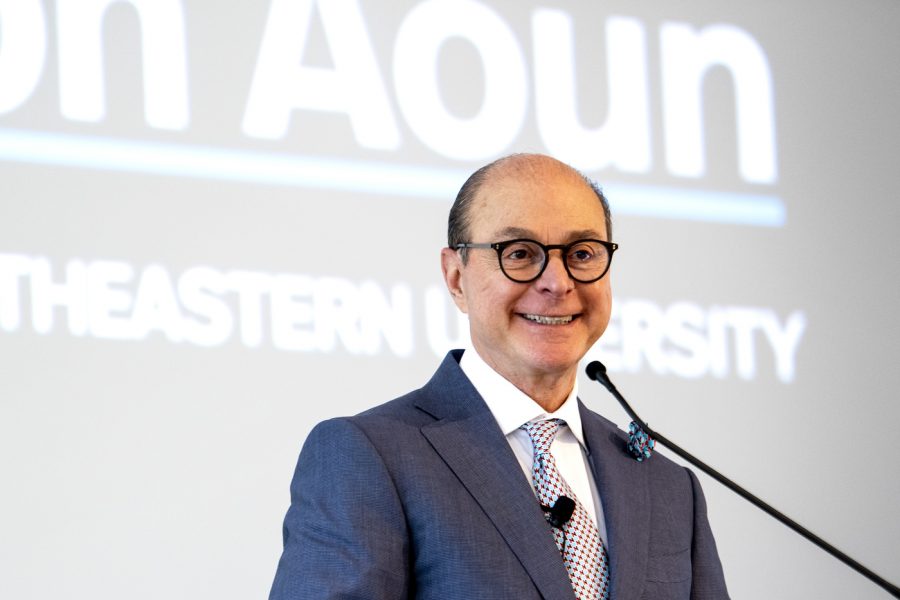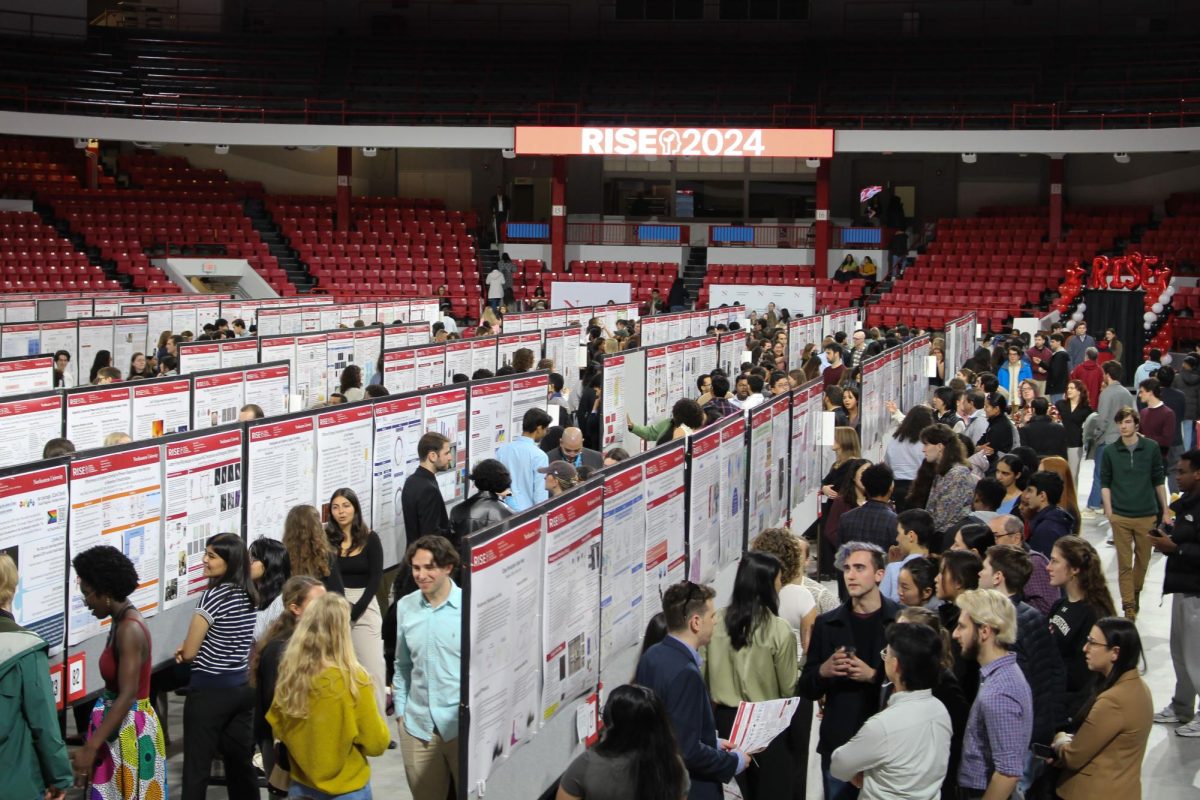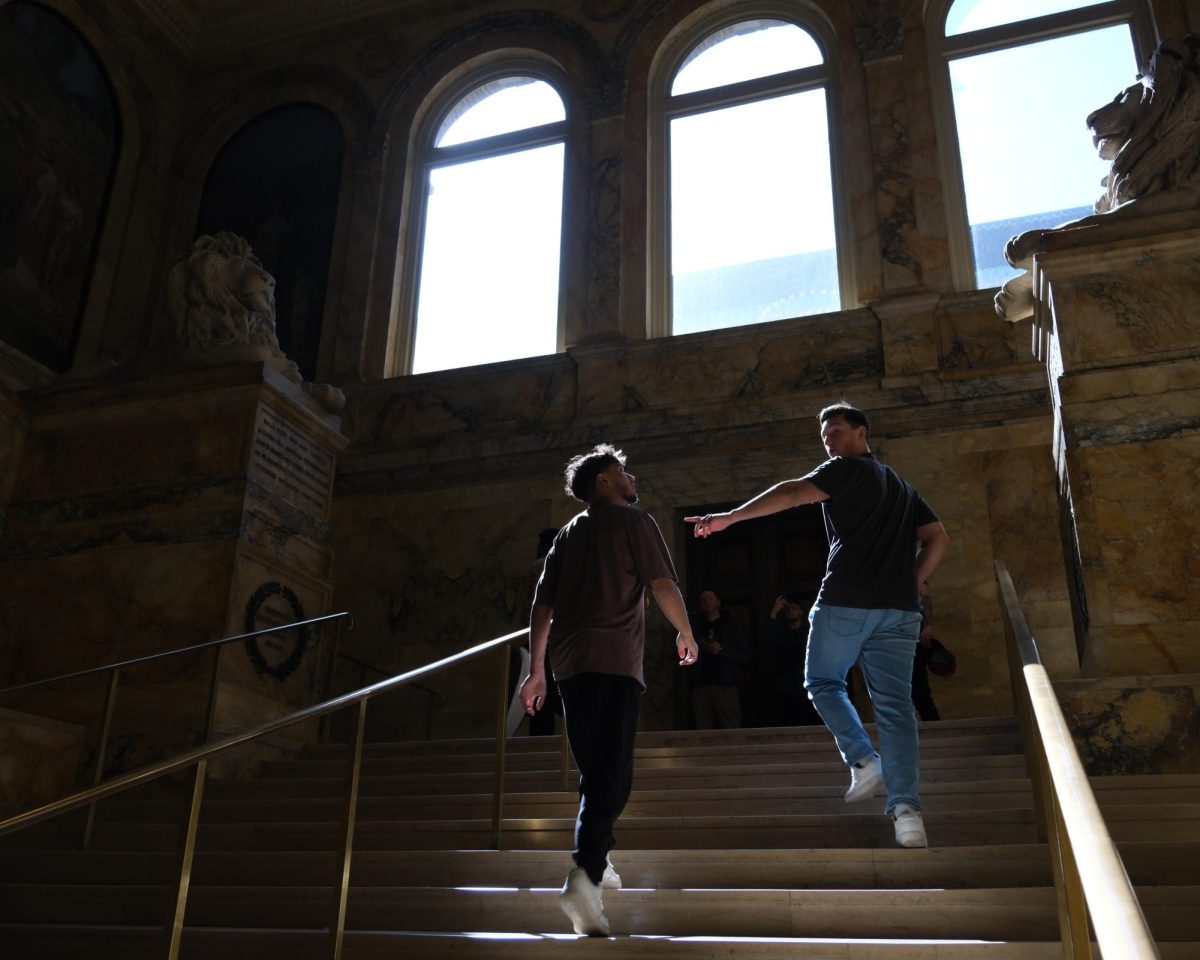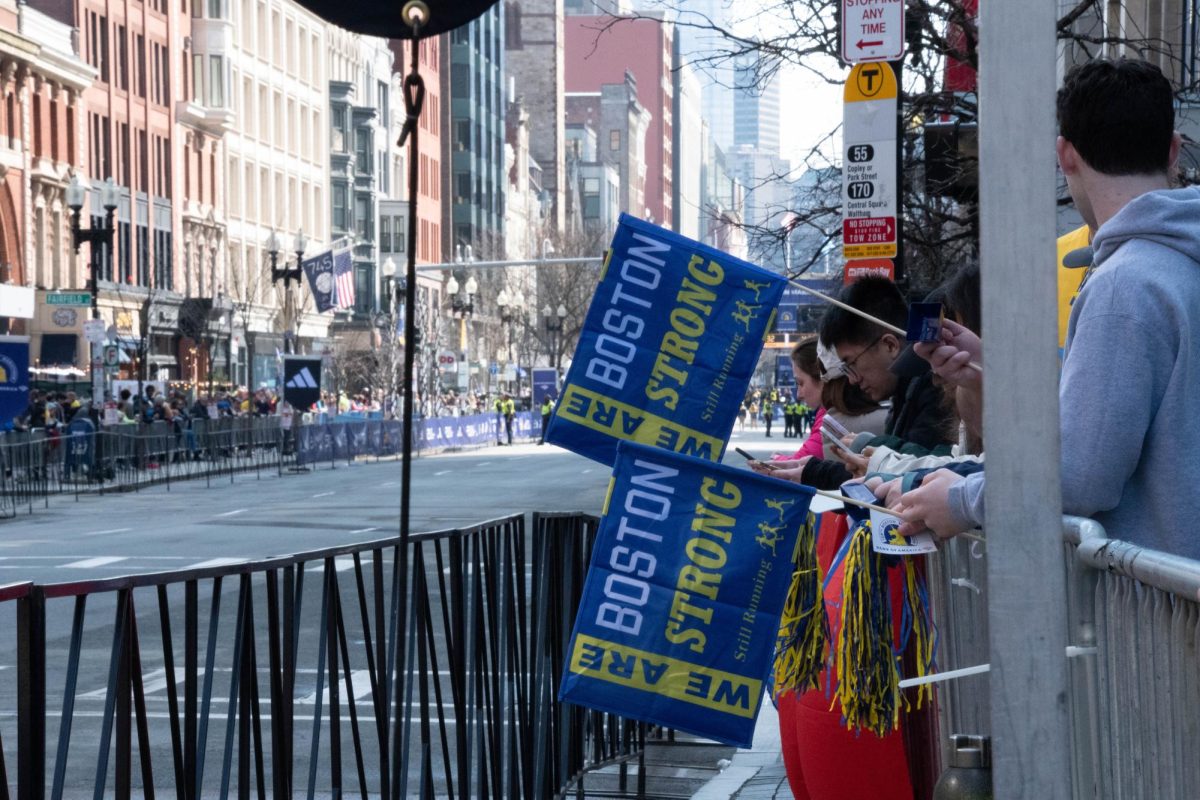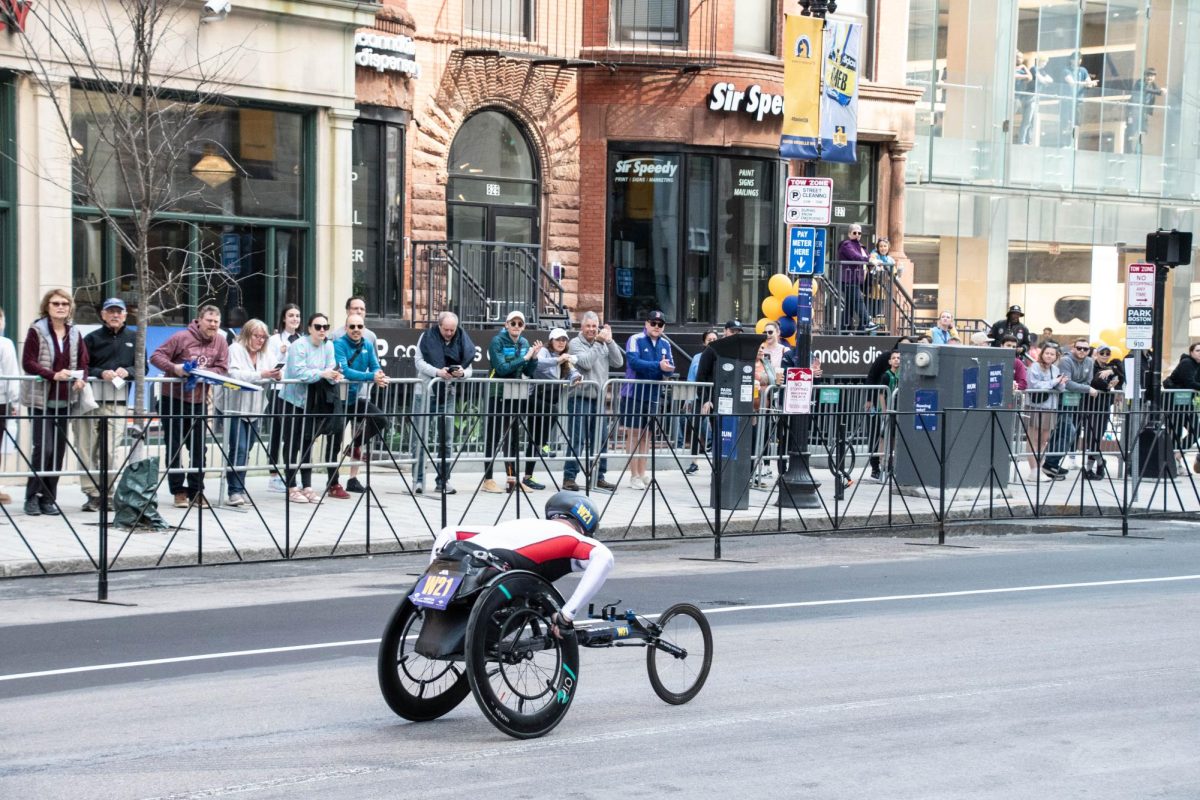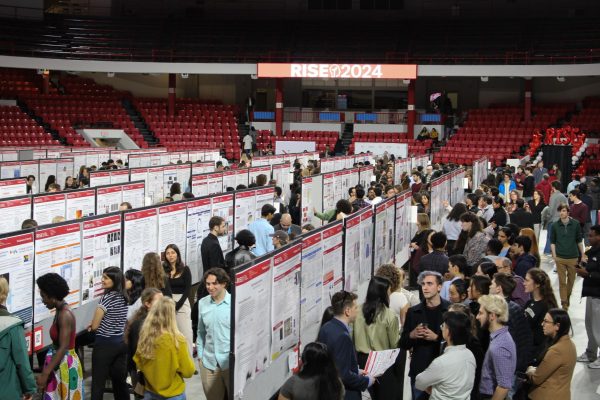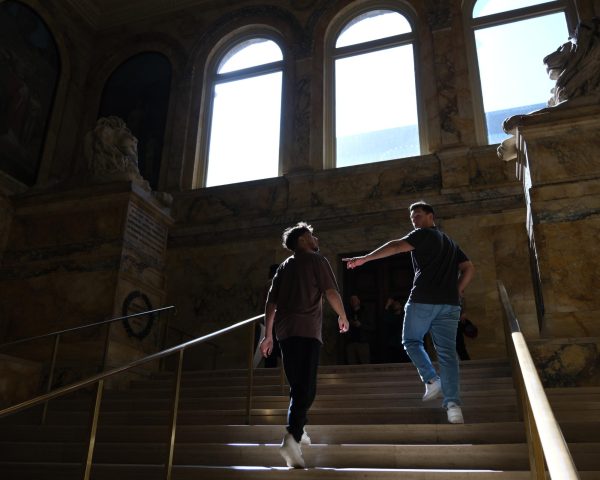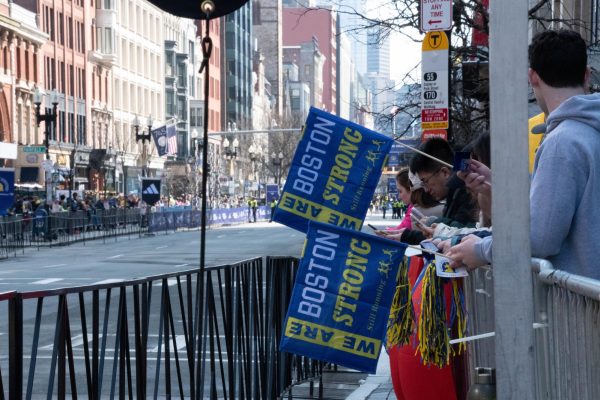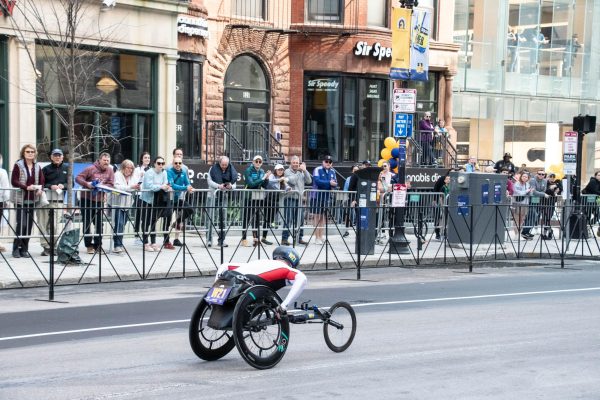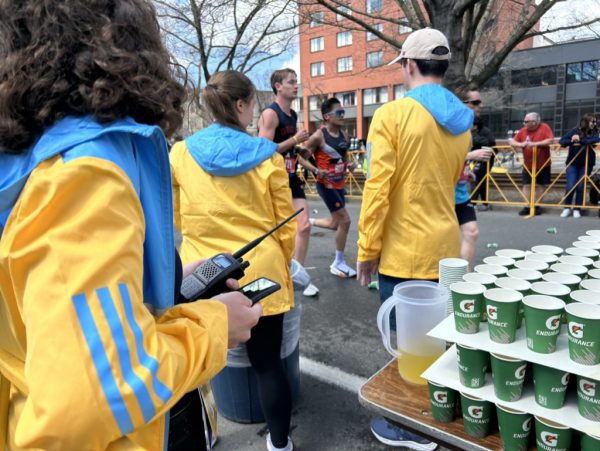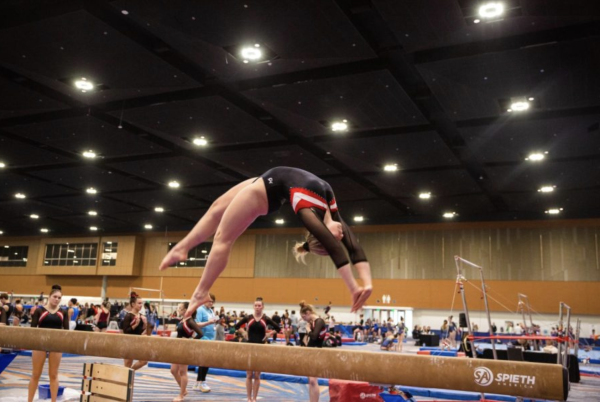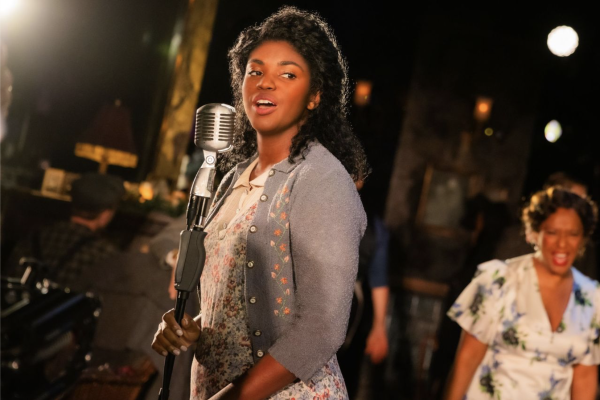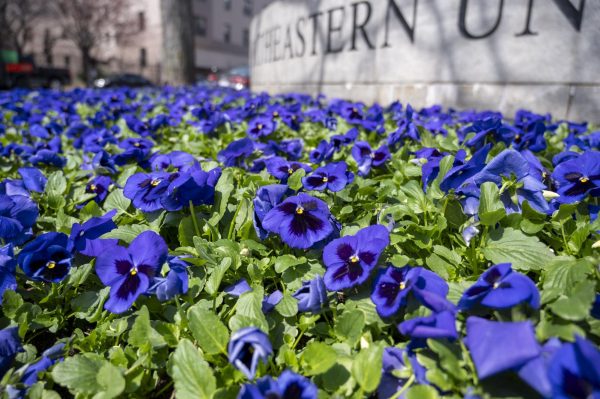President Aoun gives annual address at faculty senate meeting, discusses testing, in-person teaching
October 10, 2020
Northeastern Faculty Senate held a virtual meeting Oct. 7 to discuss topics including the results of reopening campus and the individual reports of the Senate Agenda Committee, or SAC, and the Provost.
President Joseph E. Aoun began with an annual address, praising Northeastern for the successful reopening of campus. He highlighted the hundreds of staff and faculty who worked on reopening, as well as the positive test rates, which have remained low at a seven-day average of 0.03%.
“I want to invite those who have not yet visited campus to come and visit,” Aoun said. “This is the safest place in Massachusetts. Safer than the grocery stores you visit and the restaurants you visit.”
Aoun’s speech also covered the impact of COVID-19 on the educational model, as well as Northeastern’s work toward action items in response to the Black Lives Matter movement. Aoun called this past summer’s protests a “wake-up call” as universities were caught flat-footed while systemic racism became a major conversation across the country.
He focused on the importance of bringing faculty and students back to campus, especially in relation to finance. Emphasizing the fact that Northeastern is a tuition-dependent institution, Aoun discussed the pandemic’s financial impact on the professional and master’s programs due to the lack of return of international students.
“We have to work very hard to provide the best experience to our learners, and this is why you need to be on campus,” he said, addressing the faculty members.
Additionally, he discussed the freeze in salaries that occurred because of the COVID-19 situation. Although this occurred, Aoun said that it did not stop the contributions to retirement of faculty, as the university did not want to take that away.
In response to Aoun’s speech, several members of the senate raised questions and concerns on the return to campus.
“If the priority is the best learning experience for our learners, why are we being pressured to come to campus?” said Jennie Stephens, director of the school of public policy and urban affairs. “For so many of us, especially those of us who teach discussion-based interactive courses, being masked in the classroom is not the best experience for our learners. In some areas, pedagogically it is sub-optimal and traditional to be stuck in the classroom –– not flexible and innovative.”
In response, Aoun cited a survey that was sent to students asking whether they would want to return to campus and classrooms.
“Our students love to interact with you. The students love the experience, in the classroom with a mask. This is going extremely well. It is clear they love it. The other aspect is that you are the magnet for the students. Our students are on campus because of you,” he said. “The residential experience is the gold standard, it is the gold standard more than ever. Because students tasted the completely online experience and they said no.”
David Herlihy, teaching professor in music Industry, and Dee Spencer, senior full-time lecturer in supply chain and information management, raised questions on whether faculty who have increased risk of severe illness from COVID-19 were expected to return to campus. Provost David Madigan said they were not expected to return.
After Aoun’s address, Deniz Erdogmus, professor and vice chair of research, reported the progress of SAC. The report mentioned that the committee met with Madigan and Debra Franko, senior vice provost for academic affairs, on topics including the upcoming spring semester, full-time non-tenure track faculty, merit raises for faculty, assistance to faculty during the pandemic and housing benefits for faculty.
Furthermore, Erdogmus reported that this year, SAC will be looking to modify rules in order for research faculty and other non-tenured faculty to be able to advise dissertations. Although currently research faculty can advise under the provost’s approval, SAC is working to remove the requirement for permission.
“I greatly appreciate this investigation as many faculties who are [non-tenure track]have Ph.Ds, Ed.Ds [and are] on dissertation committees for external universities,” said Kristin Curry Greenwood, clinical professor and chair of the department of physical therapy, movement and rehabilitation sciences.
Madigan also gave an updated provost report, mainly covering the authorization for the searching and hiring process for faculty. The full picture on how much the Northeastern faculty and staff will grow in the upcoming academic year is unclear because of shortfalls due to dramatic expenses caused by COVID-19 and the decrease in enrollment of professional track students.
By the beginning of 2021, Madigan said that Northeastern will know how vigorously it will be pursuing hiring new faculty. However, the search for the Dean of Engineering has proceeded, with interviews continuing to take place.
The meeting concluded with a short discussion on changing the name of the Columbus Day holiday to Indigenous Peoples’ Day.



